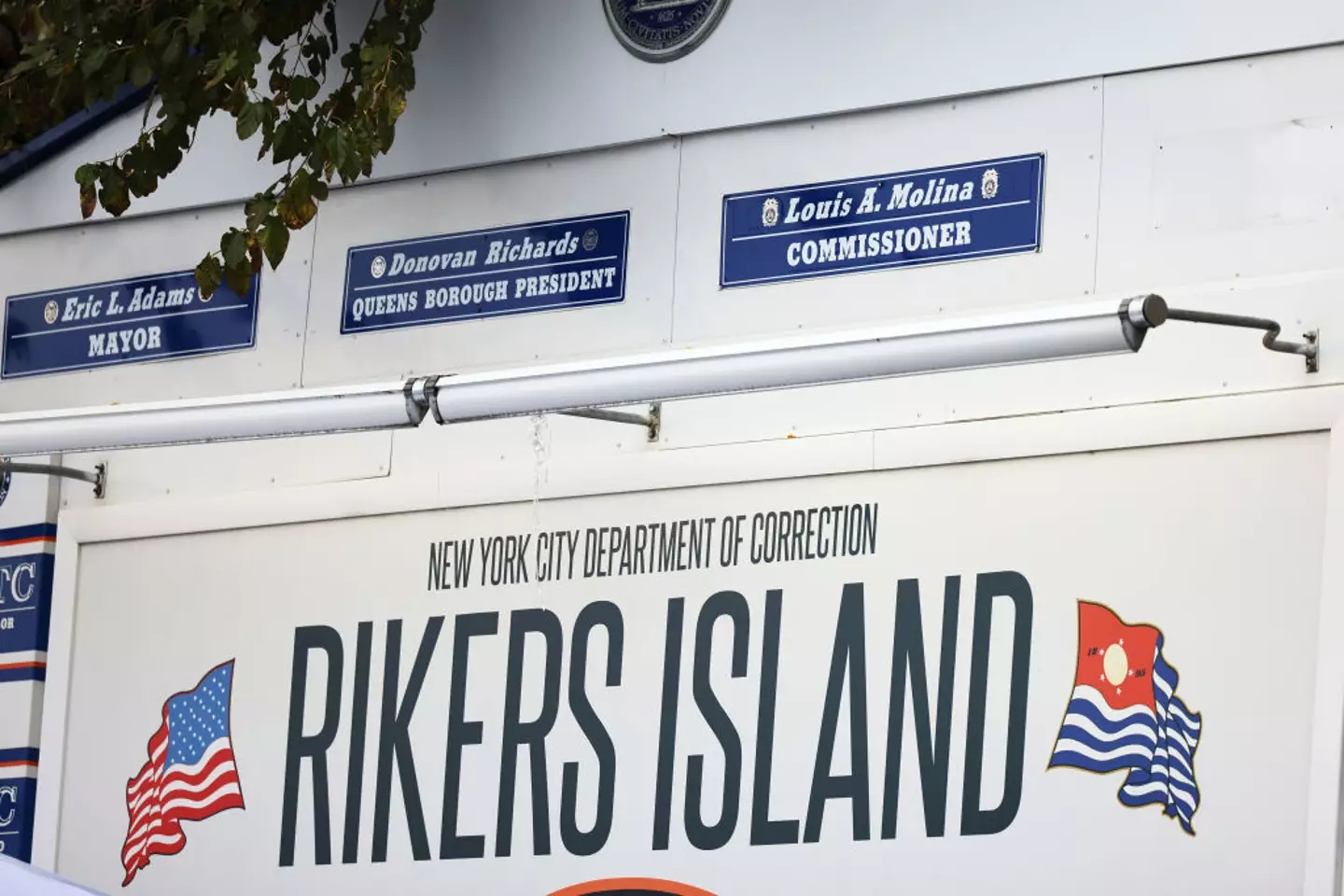
Former inmates at an infamous New York prison have explained how it really was on the inside.
Rikers Island is one of the most well-known prisons in the US and houses around 7,000 inmates at the time of writing.
Many big names have been held in the penitentiary, with the likes of late rapper Tupac Shakur, serial killer David Berkowitz, and John Lennon's killer Mark David Chapman, making up the rap sheet.
At least 11 reported deaths have come out of Rikers Island so far in 2025, with three coming in the last three weeks.
Advert
Conditions at Rikers Island are so dire in fact, that a judge ruled in 2019 that the prison must close by 2027 but just two years out from the deadline, this looks unlikely.
Despite the prison being taken out of control of the city of New York so that an independent mediation manager could oversee operations, it is widely believed that the prison will stay open as a result of delays in construction of replacement borough-based jails, report Fox.

Facilities may not be ready until 2032 according to reports, despite many calling for its close.
According to some former prisoners, the jail is 'hell on Earth', as Michele Evans revealed the reality of being an inmate.
Evans, a software engineer, spent 18 months at Rikers Island after being charged with assault when she claimed to try and flee her husband in a relationship which, according to her, involved domestic violence.
Reflecting on her time behind bars, she said: “I would describe it as hell on Earth. There are so many parts to Rikers, it is hard to put it into a few words.
“It is where people go in and never come out the same - if they even come out of it all, there are so many deaths.”
She is now backing a campaign to close the penitentiary for good, as she feared for her life, recalling: “We all thought we were going to die. It changed the course of my life, for sure.”
Shockingly, 85 percent of the Rikers population consists of people who haven't been convicted yet, but instead on remand awaiting trial.
Evans was put on a wing in the prison nicknamed the 'murder dorm', as 'nearly everybody in there was on a murder charge'.

A captain even advised her to be careful of the way she spoke to others inside as 'they will get you in the middle of the night', with inmates left completely unprotected. The ratio of one officer to a dorm of 50 beds makes it hard to monitor such a high volume of inmates.
It was a psychological nightmare for Evans, as she recalled there being no doors on the bathroom, while people took sleeping pills in order to get some shut-eye, including her.
She added: “The building itself was disgusting and old and decaying. There were mice, water bugs, cockroaches.
“When it rains the ceiling pours water. It is really hot in summer, and cold in winter.
“There is lots of fighting. Lots of pepper spray - they would spray pepper spray when the fight started. That was really difficult on your system.”
The 53-year-old was even attacked while nude in the shower, with all of these experiences leading to her taking a plea deal in order to get out of Rikers as soon as possible, after being told she would face five to 25 years if not.
After 14 months at Rikers, she was released and eventually wrote a screenplay about her experiences, in tribute to late transgender prisoner Layleen Xtravaganza Cubilette-Polanco, who suffered a seizure in 2019 behind bars and didn't receive the right care to survive in Rikers.

Many inmates don't have the money to post bail or hire a lawyer, with political activist David Campbell speaking of this following his stint at Rikers in 2018.
He was arrested at an anti-fascist protest and described the prison as 'crowded and dirty', adding that he barely slept for the first few weeks.
Campbell said 'there was always something happening', explaining: “There is always noise, there are smells, there is always stuff going on, doors banging, people yelling, people listening to music. It is really disorientating, it takes some getting used to.”
He also experienced an inmate dying as a result of medical negligence, as Herminio Villanueva, 61, died of an asthma attack after getting COVID, with prison staff failing to respond to the emergency.
Villanueva's family sued and won a case over his treatment, with the New York State Commission of Corrections admitting to inadequate assessment of his health and monitoring at the prison.
The city then paid a $2.25million settlement to the family, four years after prisoners themselves tried to carry him to the medical centre.
“I lived with this guy for a few months until he died, and it was so clear to everyone he should be in a medical unit. But it was like talking to a brick wall. It wasn’t anything malicious, it was apathy,” Campbell said of the situation.
Topics: Prison, New York, US News, Crime, Mental Health